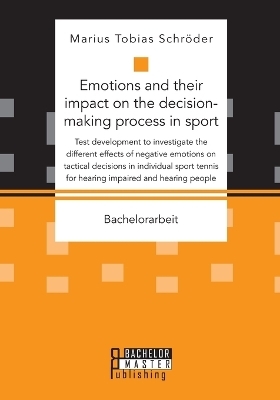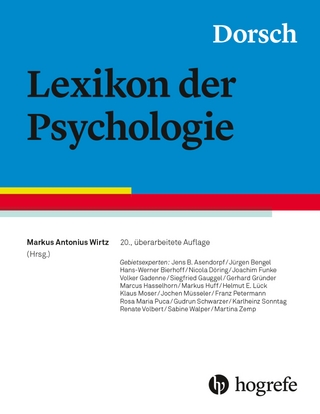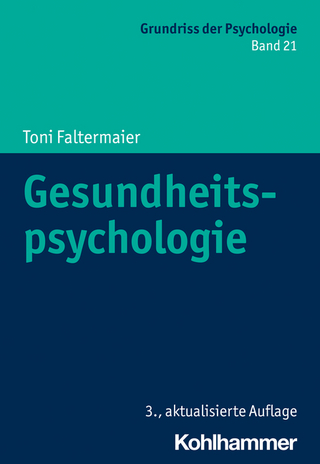
Emotions and their impact on the decision-making process in sport. Test development to investigate the different effects of negative emotions on tactical decisions in individual sport tennis for hearing impaired and hearing people
Bachelor + Master Publishing (Verlag)
978-3-95993-117-5 (ISBN)
Marius Schröder, geb. 1985 in Göppingen, arbeitet seit 2013 im Sportbereich in diversen Bereichen und Schwerpunkten. Er ist Bundestrainer des Gehörlosentennis, Athletiktrainer und bildet sich als DOSB A-Trainer Tennis weiter. Nach dem Studium der Rechtswissenschaften in Bayreuth studierte der Autor Sports Psychology and Coaching an der MET London (B.Sc. (HONS)) und Sport & Exercise Science - Sport Psychology (M.Sc.) i.A..
Text sample:Chapter 3 Research question:Thus, the present paper is dedicated to answering the following research question.How does the effect of negative emotions on tactical decisions differ between hearing impaired and hearing people in individual sports?It is to be expected that if the topic described above about the changed development in the area of decisions and emotional development is carried out, that in the area of emotion processing (negative emotions; stress and anxiety) there will be a deviating effect in the area of tactical action decisions. The starting point for this is that, as already mentioned in the introduction, there is a change in information processing in the group of hearing impaired people, as well as a change in cognitive development.In addition, it can be expected that the neurobiological examination will reveal altered brain activity in the group of hearing impaired people.3.1, Why this investigation?:Emotions can influence all sub-processes of action control, such as the processes that motivate action, the preparation of behavior, the consideration of alternative actions and finally the execution of the action itself. Among the emotionally psychologically relevant contributions of the brain, the prefrontal networks and the evaluation of the reward or punishment value of the presented stimuli are: the control of the approach and withdrawal behavior, the socio-emotional information processing, the emotional modulation of decision making, as well as inhibitory influences when switching to changed reward conditions, including the deletion of no longer intensified reactions.In this way, emotions do not only promote adaptive, situation- appropriate action, but can also be modulated or regulated by the central executive.Based on these aspects, it is worthwhile to examine the differences between hearing impaired and hearing people. The ToM or advanced Theory of Mind (aToM) is the starting point for this, as it deals with the development of emotion processing. It became clear that hearing impaired people have a different development in the processing between emotions and actions (see above). The resulting change in comparison to hearing people prompts the development of the research question as a hypothesis. It is also supported by the fact that the development of executive functions is closely linked to the development of the prefrontal cortex and that this development is altered in hearing impaired people (see above).3.1.1 State of research on hearing people:In this section, I would like to present the current state of research in the field of action decisions in relation to anxiety and stress in hearing people. I will also look at research into the effects of acute training on psychological stress.The study by Hanin et al. (2016), with the working title "Emotion - centered and action-centered coping in elite sport: Task execution design approach", investigated the extent to which emotions affect the actions of professional athletes. Hanin et al. were interested in the circumstances under which the athletes underperformed. The following points provided the framework:- Constrains-led competition environment,- Appraisals,- Decision making,- Emergent performance patterns.Hanin et al. used Task Execution Design (TED) to illustrate these relationships. Important organic functions include voltage, emotions, perception, decision making und memory (Hanin et al. 2016, S. 568). These functions are represented in the TED frame under subheading of competition constraints (task-environmental-personal), appraisals (awareness, acceptance, adaption), decision making (intensions - want, can, actions), and outcomes (Hanin et al. 2016, S.568).Hanin et al. found that emotions constraints are feeling states affecting performance in a desire or undesired way. Furthermore, there was a connection between idiosyncratic emotion labels (nervous, upset, angry, excited) and action tendencies, which became clear w
| Erscheinungsdatum | 21.10.2022 |
|---|---|
| Reihe/Serie | Bachelorarbeit |
| Sprache | englisch |
| Maße | 190 x 270 mm |
| Gewicht | 116 g |
| Themenwelt | Geisteswissenschaften ► Psychologie ► Allgemeines / Lexika |
| Schlagworte | Behindertensport • Emotion • Gehörlos • Kognition • Neurologie • Sportpsychologie • Sportwissenschaft |
| ISBN-10 | 3-95993-117-4 / 3959931174 |
| ISBN-13 | 978-3-95993-117-5 / 9783959931175 |
| Zustand | Neuware |
| Haben Sie eine Frage zum Produkt? |
aus dem Bereich


